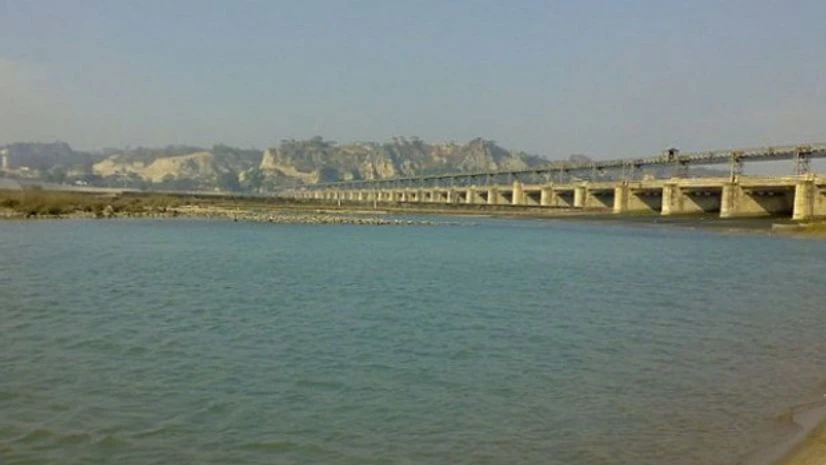The Supreme Court on Tuesday said it was obligatory on the part of Punjab and Haryana to respect and execute its orders on the Satluj-Yamuna Link (SYL) canal issue.
The apex court also warned both states to first attempt to construct the canal, after which the issue of supply of water would be considered. It also asked them to ensure that there is no agitation on the issue.
A three-judge bench headed by Justice Dipak Misra said the states have an "obligatory duty" to obey the decree passed by it, after Attorney General K K Venugopal argued that the Centre was "trying its best" to bring both Punjab and Haryana to a reconciliatory stage so that the decree can be amicably executed.
More From This Section
"The decree is for construction of canal by both the states. Therefore, canal has to be constructed. You construct the canal first. The issue of water supply will come later," the bench said and fixed the matter for further hearing on September 7.
During the hearing, Venugopal told the bench that Union Minister of Water Resources Uma Bharti had met the Chief Ministers of both the states and the Centre was hopeful that a settlement would be arrived at on the issue.
Senior advocate Shyam Divan, representing Haryana, said the matter relating to the execution of the apex court's decree was getting delayed and though negotiations were going on, "there does not seem to be any settlement".
He, however, clarified that Haryana was not standing in the way of settlement in which the Centre was mediating.
To this, the bench asked, "what is the difficulty in execution of the orders?"
Responding to the court's query, the counsel appearing for Punjab said there were several reasons.
The bench shot back, saying "a decree has been passed. You cannot defeat the decree passed by this court. ... How can you (Punjab) raise number of issues in execution of the court's order. Whatever it is, you cannot deny that there is a decree against you."
During the hearing, Venugopal said that SYL canal was a "highly emotive issue" but there was no doubt that the decree has to be executed.
"When an order or judgement is passed by this court, states have an obligatory duty to obey it. People cannot say we will not do it," the bench observed.
When the apex court was informed by Haryana that it has already done almost 90 per cent of work which it was supposed to do, the bench asked counsel for Punjab, "why should Punjab be hesitant in doing its work".
At the fag end of the hearing, the bench was informed that an agitation was going on in these states on the issue.
"When the matter is sub-judice before this court and we have granted time to the central government to proceed with the settlement, we direct that there should be sustenance of peace in the states of Punjab and Haryana and it would be the obligation of the state authorities to see that no such agitations happen there," the bench said.
"Every citizen of this country must understand that when proceeding is going on in the court, there should not be any kind of agitation on the pending issue," it said, asking the advocates to intimate this to both the states.
The controversial 1981 water-sharing agreement came into being after Haryana was carved out of Punjab in 1966. For effective allocation of water, the SYL canal link was conceptualised and both the states were required to construct their portions within their territories.
Haryana constructed the portion of SYL canal in its territory. However, Punjab, after the initial phase, stopped the work, leading to a spate of litigations.
In 2004, the Congress government in the state came out with the Punjab Termination of Agreement Act with an intention to terminate the 1981 agreement and all other pacts relating to sharing of waters of rivers Ravi and Beas.
The apex court had first decreed the suit of Haryana in 2002 asking Punjab to honour its commitments with regard to water sharing in the case.
Punjab had challenged the verdict by filing an original suit that was rejected in 2004 by the Supreme Court which asked the Centre to take over the remaining infrastructural work of the SYL canal project.
(Only the headline and picture of this report may have been reworked by the Business Standard staff; the rest of the content is auto-generated from a syndicated feed.)

)
